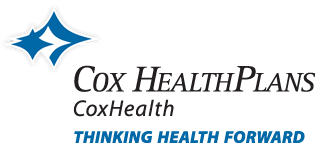Heart Disease Prevention Tips
February 3, 2021, 9:00 am
The following healthy lifestyle tips can help reduce your risk for heart disease.

Choose Healthy Foods and Drinks:
Choose healthy meals and snacks to help prevent heart disease and its complications. Be sure to eat plenty of fresh fruits and vegetables and fewer processed foods.
- Eating lots of foods high in saturated fat and trans fat may contribute to heart disease.
- Eating foods high in fiber and low in saturated fats, trans fat, and cholesterol can help prevent high cholesterol.
- Limiting salt (sodium) in your diet can also lower your blood pressure.
- Limiting sugar in your diet can lower your blood sugar level to prevent or help control diabetes.
- Do not drink too much alcohol, which can raise your blood pressure. Men should have no more than 2 drinks per day, and women no more than 1 drink per day. For more information, visit CDC’s Alcohol and Public Health website.
Learn more about healthy diet and nutrition at CDC’s Nutrition, Physical Activity, and Obesity website.
Find healthy, seasonal recipes on the Million Hearts® Recipes for a Heart-Healthy Lifestyle: https://millionhearts.hhs.gov/learn-prevent/recipes.html
Control Your Blood Pressure:
High blood pressure usually has no symptoms, so have it checked on a regular basis. Your health care team should measure your blood pressure at least once every 2 years if you have never had high blood pressure or other risk factors for heart disease.
If you have been diagnosed with high blood pressure, also called hypertension, your health care team will measure your blood pressure more often to make sure you have the condition under control. Talk with your health care team about how often you should check your blood pressure. You can check it at a doctor’s office, at a pharmacy, or at home.
If you have high blood pressure, your health care team might recommend some changes in your lifestyle, such as lowering the sodium in your diet; your doctor may also prescribe medicine to help lower your blood pressure.
Manage Your Diabetes:
If you have diabetes, monitor your blood sugar levels carefully. Talk with your health care team about treatment options. Your doctor may recommend certain lifestyle changes to help keep your blood sugar under control. These actions will help reduce your risk for heart disease.
Take Your Medicines as Directed:
If you take medicine to treat high blood cholesterol, high blood pressure, or diabetes, follow your doctor’s instructions carefully. Always ask questions if you don’t understand something. Never stop taking your medicine without first talking to your doctor, nurse, or pharmacist.
Work With Your Health Care Team:
You and your health care team can work together to prevent or treat the medical conditions that lead to heart disease. Discuss your treatment plan regularly, and bring a list of questions to your appointments. Talk with your health care team about how heart disease and mental health disorders are related.
If you’ve already had a heart attack, your health care team will work with you to prevent another one. Your treatment plan may include medicines or surgery and lifestyle changes to reduce your risk. Be sure to take your medicines as directed and follow your doctor’s instructions.
Source: https://www.cdc.gov/heartdisease/prevention.htm
